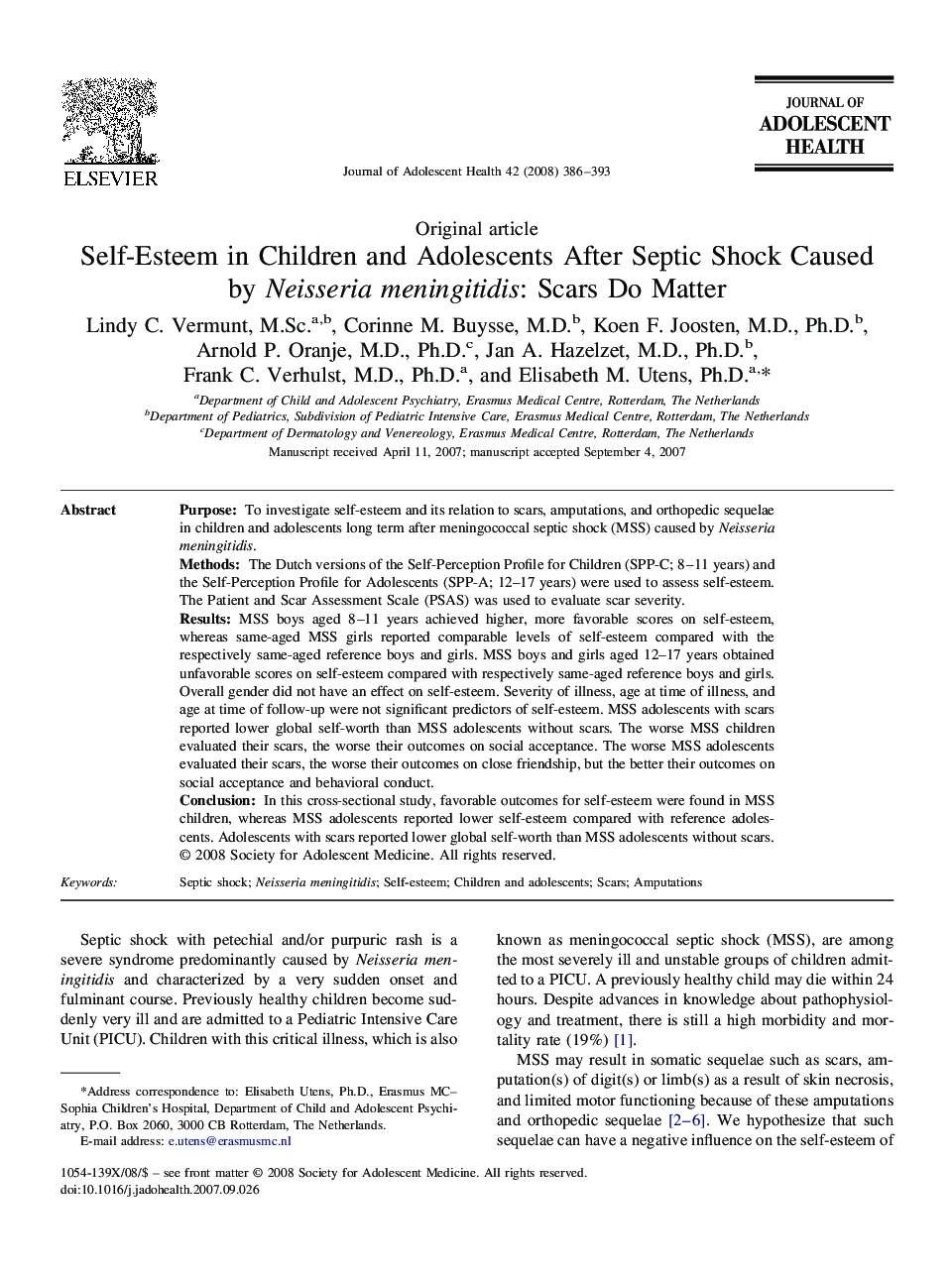| Article ID | Journal | Published Year | Pages | File Type |
|---|---|---|---|---|
| 1080324 | Journal of Adolescent Health | 2008 | 8 Pages |
PurposeTo investigate self-esteem and its relation to scars, amputations, and orthopedic sequelae in children and adolescents long term after meningococcal septic shock (MSS) caused by Neisseria meningitidis.MethodsThe Dutch versions of the Self-Perception Profile for Children (SPP-C; 8–11 years) and the Self-Perception Profile for Adolescents (SPP-A; 12–17 years) were used to assess self-esteem. The Patient and Scar Assessment Scale (PSAS) was used to evaluate scar severity.ResultsMSS boys aged 8–11 years achieved higher, more favorable scores on self-esteem, whereas same-aged MSS girls reported comparable levels of self-esteem compared with the respectively same-aged reference boys and girls. MSS boys and girls aged 12–17 years obtained unfavorable scores on self-esteem compared with respectively same-aged reference boys and girls. Overall gender did not have an effect on self-esteem. Severity of illness, age at time of illness, and age at time of follow-up were not significant predictors of self-esteem. MSS adolescents with scars reported lower global self-worth than MSS adolescents without scars. The worse MSS children evaluated their scars, the worse their outcomes on social acceptance. The worse MSS adolescents evaluated their scars, the worse their outcomes on close friendship, but the better their outcomes on social acceptance and behavioral conduct.ConclusionIn this cross-sectional study, favorable outcomes for self-esteem were found in MSS children, whereas MSS adolescents reported lower self-esteem compared with reference adolescents. Adolescents with scars reported lower global self-worth than MSS adolescents without scars.
